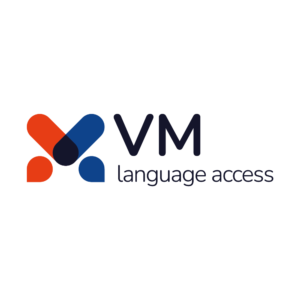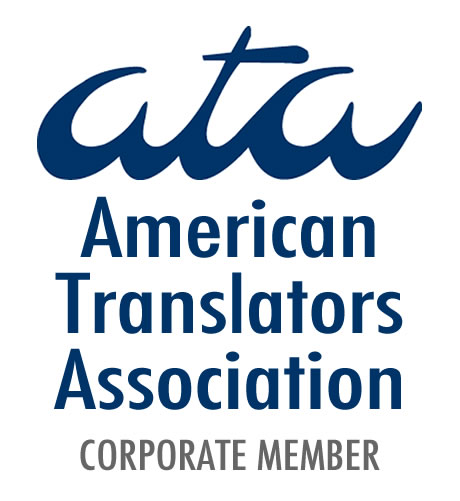
How Translation Boosts Business Growth and Its Importance in Healthcare
In today’s interconnected world, businesses and industries are no longer confined by borders. Whether you’re an e-commerce store expanding into international markets, a law firm dealing with multilingual contracts, or a hospital serving diverse communities, one thing remains clear—effective communication is key to success. But what happens when language becomes a barrier? This is where translation steps in as a powerful tool to bridge gaps, drive business growth, and ensure clarity in critical industries like healthcare.
Many companies still underestimate the impact of translation on their bottom line. They assume that English is enough to reach global audiences or that free tools like Google Translate can do the job. However, professional translation goes far beyond simple word-for-word conversion—it ensures cultural relevance, accuracy, and trust, all of which are vital for building strong relationships with customers and clients.
In this article, we’ll explore how translation boosts business growth across different industries and why translation matters in healthcare, where clear communication can literally save lives.
Expanding into International Markets
One of the biggest ways translation boosts business growth is by enabling companies to enter new markets with confidence.
Breaking Language Barriers
Imagine launching a product in a foreign country but failing to provide translated product descriptions or marketing materials. Customers who don’t understand the language will quickly move on to a competitor that speaks to them directly. Businesses that invest in professional translation can connect with international audiences more effectively, making their brand more accessible and appealing.
Localization: More Than Just Translation
Translation is not just about converting words; it’s about making content resonate with the target audience. Localization involves adapting elements such as currency, date formats, idioms, and even cultural preferences to ensure that the message feels natural to the audience. A poorly localized campaign can lead to misunderstandings or even offend potential customers.
Boosting Customer Trust and Engagement
When people see content in their native language, they feel valued and understood. Studies show that consumers are more likely to purchase from a website that provides information in their preferred language. Offering multilingual customer support, translated user manuals, and localized social media content can significantly enhance customer satisfaction and loyalty.
Increasing Revenue Through Multilingual Marketing
The Power of Multilingual SEO
Search engine optimization (SEO) isn’t just for English websites. If businesses want to attract global customers, they need to optimize their websites in multiple languages. By translating website content and implementing multilingual SEO strategies, companies can rank higher in international search results, driving more organic traffic and increasing conversions.
Higher Conversion Rates
Customers are more likely to complete a purchase when they fully understand what they’re buying. Multilingual marketing campaigns, including email newsletters, social media ads, and landing pages, help businesses capture a wider audience and increase conversion rates. In contrast, businesses that rely on automatic translation tools risk alienating potential buyers due to awkward or incorrect phrasing.
E-Commerce and the Global Marketplace
For online retailers, translation is a game-changer. Platforms like Amazon and Shopify allow sellers to reach international customers, but without proper translation, products may go unnoticed. Providing accurate, well-translated product descriptions and customer reviews in multiple languages builds credibility and increases sales potential.
Enhancing Business Communication and Partnerships
Better B2B Relationships
Business partnerships often involve negotiations, contracts, and legal agreements that must be crystal clear. A single mistranslation in a legal document can lead to costly disputes or lost deals. Professional translation ensures that all parties fully understand the terms and conditions, fostering trust and preventing misunderstandings.
Multilingual Customer Support
A company’s reputation depends on how well it serves its customers. Offering multilingual customer service can make a huge difference in global markets. Whether through phone support, chatbots, or email, businesses that communicate with customers in their native language demonstrate commitment and professionalism.
Why Translation Matters in Healthcare
While translation is crucial for business growth, it plays an even more vital role in industries where communication is a matter of life and death—such as healthcare.
Ensuring Patient Safety
Medical errors due to language barriers are a serious concern. Imagine a patient who doesn’t speak English receiving incorrect medication instructions because the translation was unclear. Accurate translation of prescriptions, medical records, and treatment plans ensures patient safety and reduces the risk of medical malpractice.
Breaking Language Barriers in Hospitals
Hospitals and clinics serve diverse populations, and many patients rely on interpreters or translated materials to communicate with doctors. Without professional translation services, misdiagnoses and treatment delays can occur. Healthcare providers who invest in translation improve patient care and overall health outcomes.
Legal and Ethical Considerations
In many countries, medical institutions are legally required to provide translation and interpretation services to non-native speakers. Failure to comply with these regulations can result in lawsuits and reputational damage. By offering accurate translations, healthcare facilities ensure that they meet ethical and legal standards while providing equitable care to all patients.
Translation in Pharmaceutical and Research Industries
Clinical Trials and Research
Medical research is a global effort, often involving participants from different linguistic backgrounds. Accurate translation of consent forms, research studies, and clinical trial documentation is crucial to ensure that participants fully understand their rights and risks.
Pharmaceutical Translation
The pharmaceutical industry relies on translation for drug labels, packaging, and patient information leaflets. A minor mistranslation in dosage instructions can have catastrophic consequences, which is why pharmaceutical companies prioritize high-quality translation services to maintain compliance and protect patients.
The Cost of Poor Translation
Both businesses and healthcare institutions suffer when they cut corners on translation. Here’s what’s at stake:
Lost Revenue and Reputation Damage
For businesses, poor translation can lead to miscommunication, lost deals, and a damaged brand reputation. A company launching a product with a mistranslated slogan risks being mocked or misunderstood in foreign markets.
Legal Consequences
Legal translation errors can be costly. Whether it’s a business contract, medical document, or immigration paperwork, a single mistake can lead to financial losses or legal trouble.
Health and Safety Risks
In healthcare, inaccurate translation can put lives at risk. Misinterpretations of medical documents, prescriptions, or discharge instructions can lead to severe health complications or fatalities.
The Future of Translation: Human Expertise vs. AI
With the rise of artificial intelligence, many wonder if machine translation will replace human translators. While AI tools like Google Translate have improved, they still lack the cultural awareness and contextual understanding that human translators provide.
Why Human Translators Are Still Essential
- AI struggles with idioms, humor, and cultural nuances
- Machines can’t always distinguish between multiple meanings of a word
- Industry-specific terminology requires human expertise
- Professional translators ensure accuracy and localization, preventing costly mistakes
Translation is much more than converting words from one language to another—it’s about connection, trust, and clarity. Businesses that invest in professional translation services gain a competitive edge, increase their revenue, and build stronger relationships with international clients. Meanwhile, in healthcare, accurate translation can be the difference between life and death.
As the world becomes more interconnected, translation will continue to play a critical role in breaking language barriers, driving business growth, and ensuring effective communication in essential fields. Whether you’re a business owner looking to expand or a healthcare provider aiming to improve patient care, investing in high-quality translation is a step toward success.











